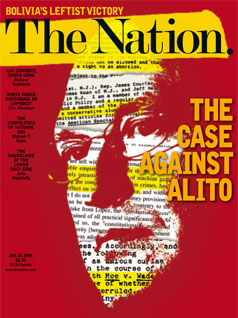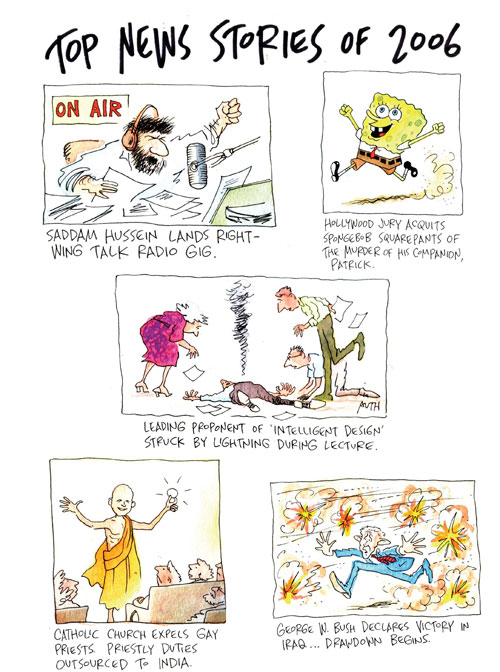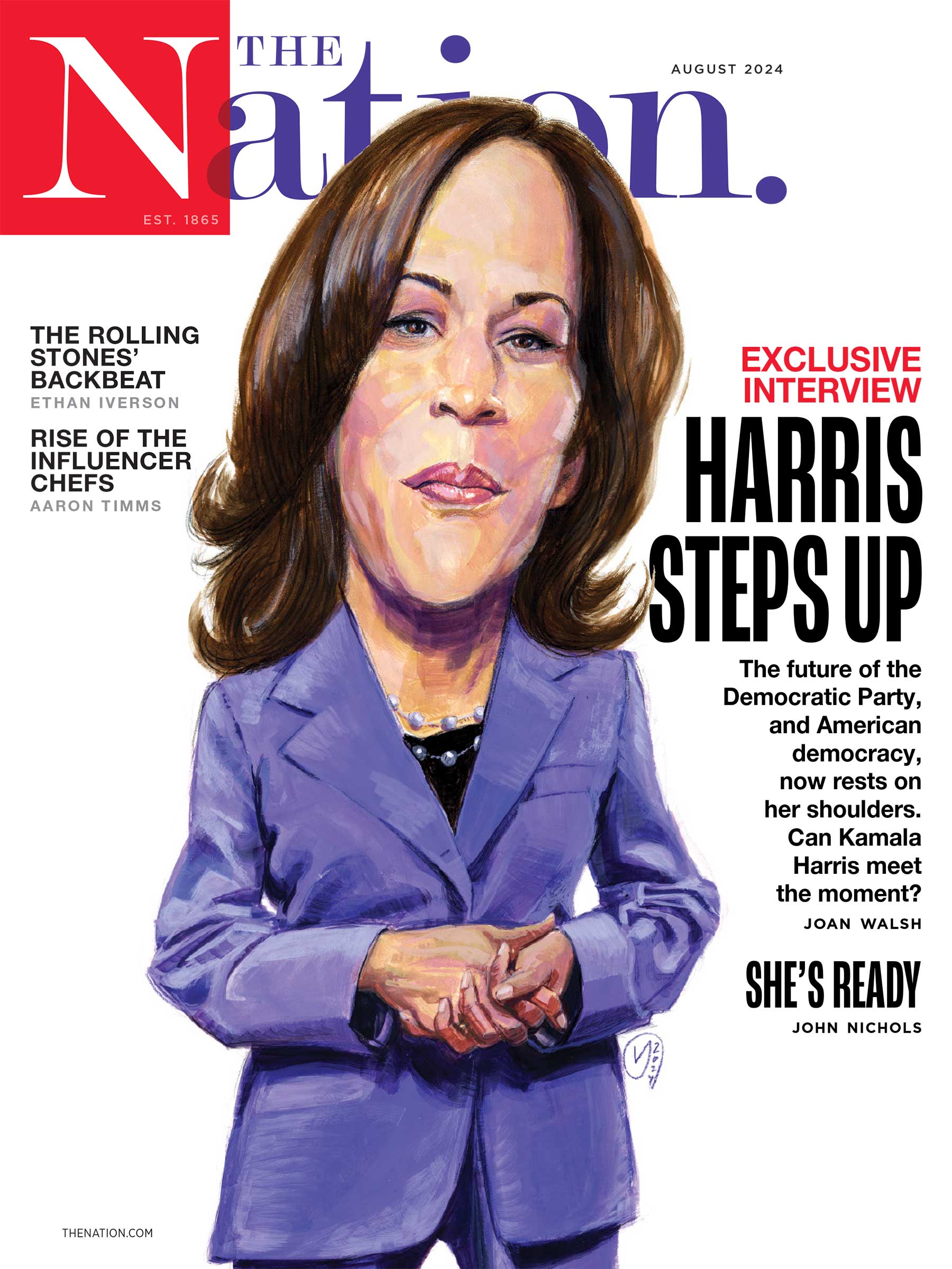
Print Magazine
January 23, 2006 Issue
Cover art by: Cover by Gene Case & Stephen Kling/Avenging Angels
Purchase Current Issue or Login to Download the PDF of this Issue Download the PDF of this Issue
Editorial
Letters
Feature
Books & the Arts
What You Do
when nobody's looking
in the black sites what you do
when nobody knows you
are in there what you do






